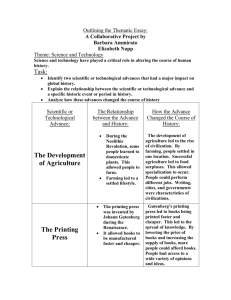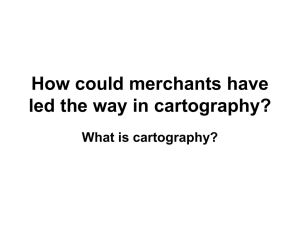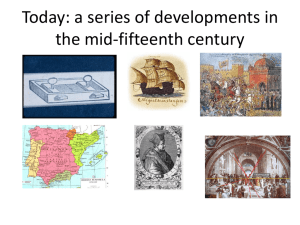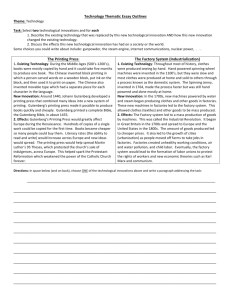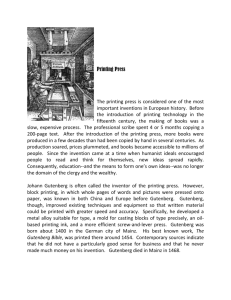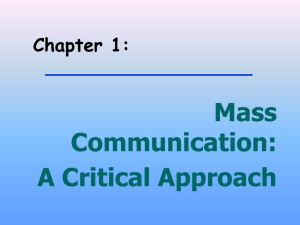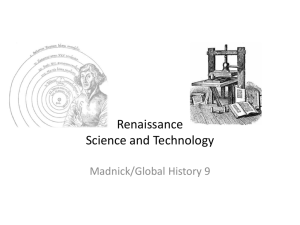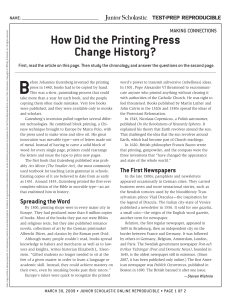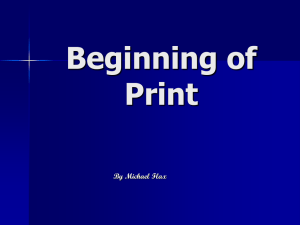Printing Press DBQ
advertisement
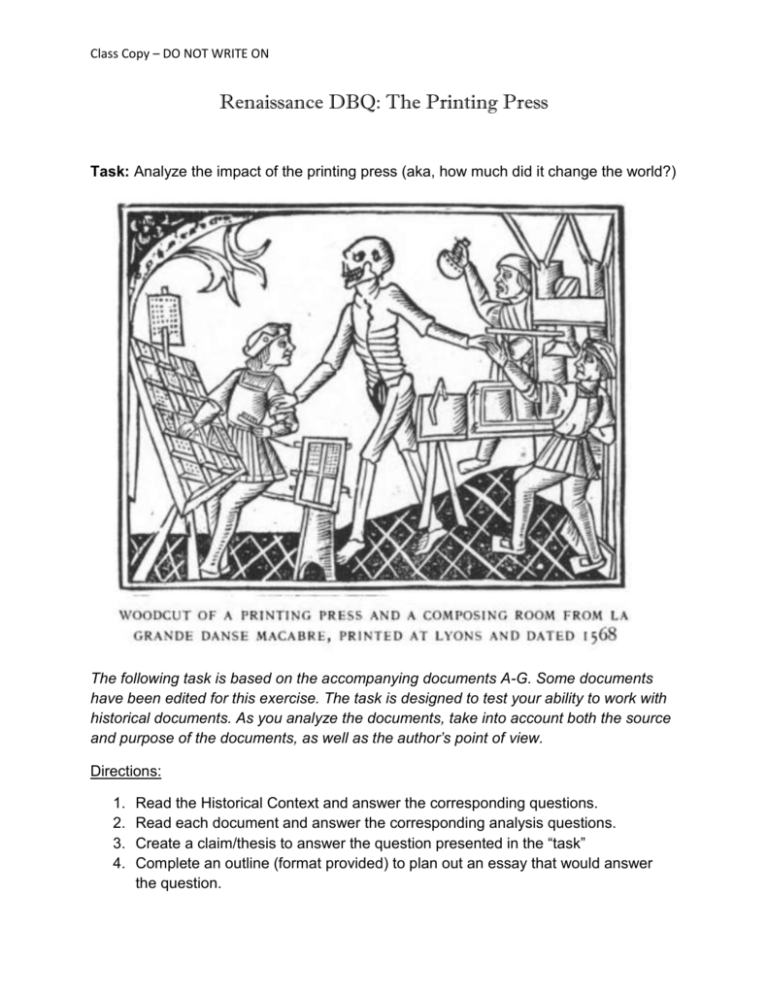
Class Copy – DO NOT WRITE ON Renaissance DBQ: The Printing Press Task: Analyze the impact of the printing press (aka, how much did it change the world?) The following task is based on the accompanying documents A-G. Some documents have been edited for this exercise. The task is designed to test your ability to work with historical documents. As you analyze the documents, take into account both the source and purpose of the documents, as well as the author’s point of view. Directions: 1. 2. 3. 4. Read the Historical Context and answer the corresponding questions. Read each document and answer the corresponding analysis questions. Create a claim/thesis to answer the question presented in the “task” Complete an outline (format provided) to plan out an essay that would answer the question. Class Copy – DO NOT WRITE ON Task: Analyze the impact of the printing press (aka, how much did it change the world?) Historical Context The printing press would not have been possible without the invention of paper. For centuries people had written on animal skins. And as far back as 105 CE the Chinese had invented paper. Slowly, papermaking technology spread to Europe where in the 1400s Italian merchants developed mass production techniques. Gutenberg was a businessman who knew about the availability of cheap and durable paper. He also knew in the mid-1400s that something special was going on in Europe. This something was the beginning of what historians call the Renaissance, a time when ideas, old and new, were exploding across Europe like never before. Of course, it was the book that helped spread these ideas and Gutenberg wanted to make a less expensive book. As a goldsmith in Mainz, Germany, Gutenberg developed the necessary skill to carve letters out of metal. Once enough letters were created, one could move the letters around and arrange them to form all the words and sentences on a page. This process was called typesetting. Before the printing press, books were written out by hand. As a result, books took a long time to produce and were both expensive and rare. Because of these factors, few people in Europe owned books or could even read. The printing press changed all of this. Books became plentiful, and were now being written in local languages (vernaculars) such as German and English, not just Latin (which only a few people could read). This caused a chain reaction. More books led to more people reading, reading translates to literacy, literacy leads to education and education leads to more independent thinking. These books were both for entertainment and for practical purposes, exposing people to different philosophies and ways of thinking about things. In 1455, Gutenberg printed his first book – 180 Bibles, each of them over 1800 pages long. There are only a few of these Gutenberg Bibles still in existence today and each is worth over $30 million. Gutenberg knew that many people would look at these books as something strange or the work of the devil. So he made his type look identical to a scribe’s handwriting. It worked, and the printing revolution erupted. By 1500, less than 50 years after the Gutenberg Bibles, over 20 million printed books were in existence. Class Copy – DO NOT WRITE ON Document A: Description of Book Making before the Printing Press During the Middle Ages, manuscript books were produced by monks who worked with pen and ink in a copying room known as a scriptorium. Even a small book could take months to complete, and a book the size of the Bible could take several years. www.hrc.utexas.edu/exhibitions/permanent/gutenberg/2a.html Document B: Image of a monk in a Monastery copying a book Class Copy – DO NOT WRITE ON Document C: Description of the importance of Gutenberg’s Printing Press Document D: A wood engraving and modern diagram of a printer’s workshop gds.parkland.edu Class Copy – DO NOT WRITE ON Document E: Prices and Quantities of Printed Books in England 1495-1639 Document F: Thomas Carlyle, Sartor Resartus, 1833 Class Copy – DO NOT WRITE ON Document G: The Printing Press and its Effects on Book Production – Revolution or Evolution?

